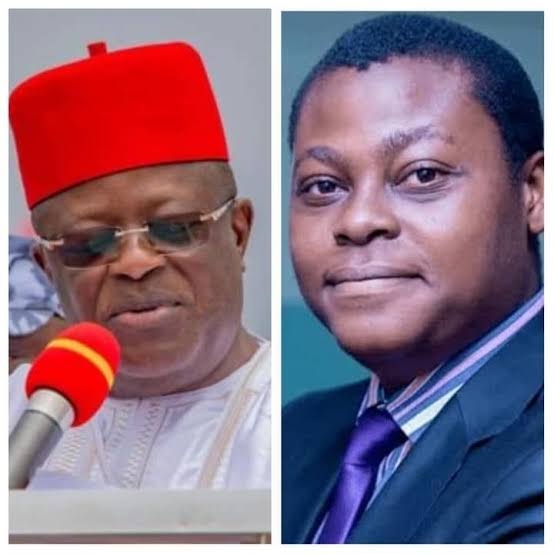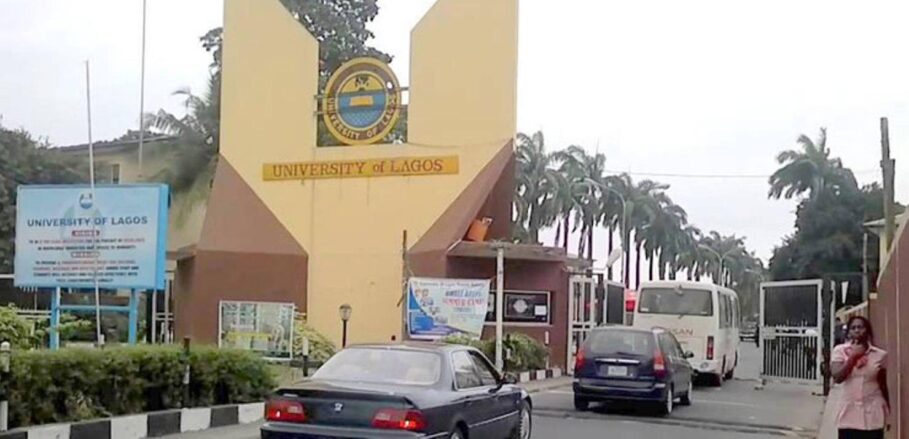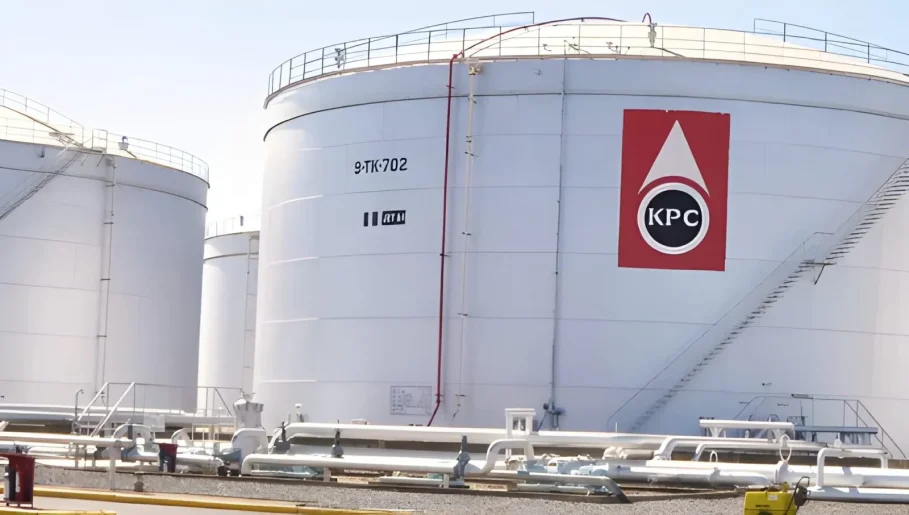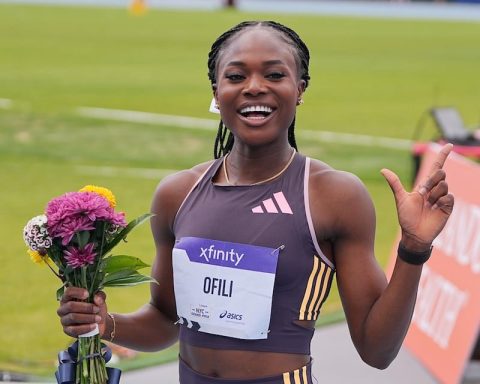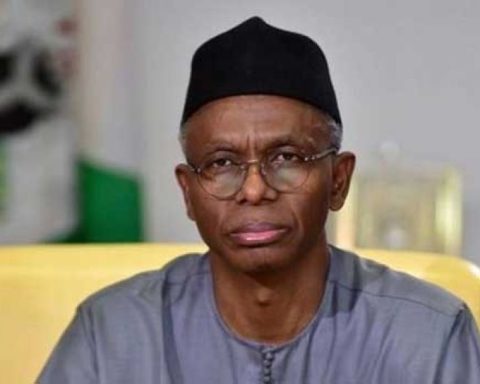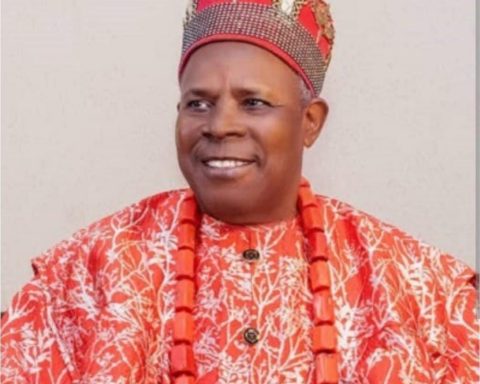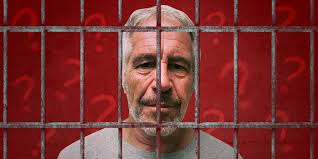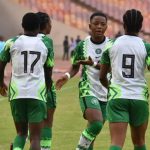What was meant to be a policy conversation quickly turned into one of Nigeria’s most talked-about television moments of 2025.
On October 7, Minister of Works David Umahi clashed live on Arise Television with anchor Rufai Oseni over questions surrounding funding and transparency in the Lagos–Calabar Coastal Highway project.
The heated exchange once again spotlighted Nigeria’s uneasy relationship between power and public accountability.
Join our WhatsApp ChannelThe Flashpoint
During the live broadcast of The Morning Show, Oseni pressed the minister to explain how the ₦700 billion Dutch loan tied to the project had been utilized and to disclose the cost per kilometre (CPkM) of the ongoing highway – questions that have lingered since 2024. He also asked Umahi to confirm reports that he had complained about him to President Bola Tinubu after an earlier confrontation.
Umahi bristled at the suggestion.
“Who are you? Who are you that I will report to the President? You are too small,” he snapped.
Oseni countered that he had proof of the remark, allegedly made at the commissioning of a section of the highway. Umahi denied it again and dismissed the matter.
When Oseni repeated his demand for figures, the minister retorted:
“You don’t know anything about engineering, so you should keep quiet. I am a Professor in the field of Engineering.”
Asked which university had conferred that title, Umahi paused and replied,
“I am a Professor of Engineering because I understand it very well – a Professor in Practice by experience.”
He argued that no fixed cost per kilometre could be given yet.
“Each kilometre is different. Some are bridges, some are swamp crossings, some are dry land. You can only talk of average cost per kilometre when the project is 100 percent complete.”
The minister also clarified that the Dutch loan had not been disbursed as a lump sum.
“When we complete a section, we take a certificate of completion to the funder. They confirm, then release the payment. That’s how international project funding works,” he said.
He declined, however, to give details on interest rates or repayment structure. Then, in a lighter moment, he quipped:
“The roads we are building can be compared to the roads in heaven. If I continue, I will have to charge you for the lectures.”
The banter sparked laughter in the studio but ignited intense online debate. Some viewers accused Oseni of disrespect, while others praised his persistence as an example of responsible journalism.
Umahi’s jesting reference to Oseni as a “SAN” – Senior Advocate of Nigeria quickly trended online. Oseni embraced the tag on X (formerly Twitter), describing himself humorously as a “SAN by experience,” mirroring Umahi’s self-styled “Professor in Practice.”
Umahi’s Defence and the Coastal Highway
Much of Umahi’s defence echoed explanations he gave in an earlier April 11, 2024 Arise TV interview with Oseni and Reuben Abati.
Then, he described the Lagos–Calabar Coastal Highway as a transformational corridor that would open trade and tourism along Nigeria’s southern coastline.
According to Umahi, the project’s financing structure combines local and international funding.
“Section 1 the 30 percent component is Naira-denominated, while 70 percent is a loan component,” he said, noting that Deutsche Bank had even oversubscribed the facility by $100 million, convinced the project cost was “too cheap for its quality.”
On cost variations, he argued that no two kilometres were identical due to bridges, flyovers, and swamps.
He also defended Hitech Construction Company, the sole contractor, saying its equipment could handle multiple sections simultaneously.
Addressing controversies over demolitions at Landmark Beach, he said only encroaching structures were removed.
“The Supreme Court ruled that 250 metres from the shoreline belong to the Federal Government,” Umahi said, adding that 39 affected property owners were “properly evaluated and compensated.”
READ ALSO: Lagos-Calabar Coastal Road: I Insist That Our Resources Be Used Judiciously, Obi Replies Umahi
Tinubu Commissions Completed 30km Section Of Lagos-Calabar Coastal Highway, Hails Umahi, Contractors
The Accountability Debate
While Umahi’s explanations sought to clarify, the tone of the 2025 exchange had the opposite effect.
The fiery encounter reignited national conversation about how Nigerian officials handle scrutiny especially from journalists unwilling to back down.
Social critic VeryDarkMan described the scene as “a big embarrassment to the minister.”
“Rufai Oseni’s only offence is asking for accountability, which every Nigerian should be demanding,” he said.
Human-rights lawyer Inibehe Effiong agreed:
“Rufai Oseni’s style isn’t unprofessional. Only those who sympathise with arrogant politicians are offended. His ‘crime’ is refusing to yield when officials trade transparency for tantrums.”
Public analyst Onyokpo faulted Umahi’s defence on technical grounds.
“Even with bridges or swamps, an average cost per kilometre can be computed. It’s surprising that a self-proclaimed ‘Professor in Practice’ dismissed that basic principle,” he noted.
For many Nigerians, the confrontation underscored a growing trust deficit between leaders and citizens.
Promise and Controversy
Spanning over 700 kilometres, the Lagos–Calabar Coastal Highway is among the Tinubu administration’s most ambitious projects, intended to connect eight coastal states Lagos, Ondo, Delta, Bayelsa, Rivers, Akwa Ibom, and Cross River and stimulate trade, tourism, and logistics.
Yet the project remains mired in opacity and public skepticism.
Critics question the lack of published cost breakdowns, loan terms, and competitive bidding.
Property demolitions, particularly around Landmark, Winhomes, further deepened distrust.
Economists and civic watchdogs, including BudgIT and SERAP, have urged the government to release detailed financing documents, warning that secrecy around a multibillion-naira infrastructure scheme undermines public confidence.
The Broader Question: Can Nigerians Demand Answers?
Analysts say the Umahi–Oseni episode transcends personalities.
Governance scholar Dr. Tade Akin-Aina observed:
“In democracies, journalists are watchdogs. In Nigeria, officials often see them as adversaries. That tension defines our governance culture.”
The exchange, he said, illustrates the challenge of institutionalising transparency in a system where accountability is still seen as confrontation.
After the Storm
Since the interview, Umahi has continued project inspections, insisting the coastal highway will stand as “a monument to President Tinubu’s developmental vision.”
Arise TV has stood by its anchor, reaffirming its commitment to “robust journalism and uncompromising accountability.”
In the end, the clash did more than spark headlines – it reopened a national conversation on power, public trust, and the steep cost of asking hard questions in Nigeria.
Amanze Chinonye is a Staff Correspondent at Prime Business Africa, a rising star in the literary world, weaving captivating stories that transport readers to the vibrant landscapes of Nigeria and the rest of Africa. With a unique voice that blends with the newspaper's tradition and style, Chinonye's writing is a masterful exploration of the human condition, delving into themes of identity, culture, and social justice. Through her words, Chinonye paints vivid portraits of everyday African life, from the bustling markets of Nigeria's Lagos to the quiet villages of South Africa's countryside . With a keen eye for detail and a deep understanding of the complexities of Nigerian society, Chinonye's writing is both a testament to the country's rich cultural heritage and a powerful call to action for a brighter future. As a writer, Chinonye is a true storyteller, using her dexterity to educate, inspire, and uplift readers around the world.
- Amanze Chinonye
- Amanze Chinonye
- Amanze Chinonye
- Amanze Chinonye
- Amanze Chinonye
- Amanze Chinonye
- Amanze Chinonye
- Amanze Chinonye
- Amanze Chinonye
- Amanze Chinonye
- Amanze Chinonye
- Amanze Chinonye
- Amanze Chinonye
- Amanze Chinonye
- Amanze Chinonye
- Amanze Chinonye
- Amanze Chinonye
- Amanze Chinonye
- Amanze Chinonye
- Amanze Chinonye
- Amanze Chinonye
- Amanze Chinonye
- Amanze Chinonye
- Amanze Chinonye
- Amanze Chinonye
- Amanze Chinonye
- Amanze Chinonye
- Amanze Chinonye
- Amanze Chinonye
- Amanze Chinonye
- Amanze Chinonye
- Amanze Chinonye
- Amanze Chinonye
- Amanze Chinonye
- Amanze Chinonye
- Amanze Chinonye
- Amanze Chinonye
- Amanze Chinonye
- Amanze Chinonye
- Amanze Chinonye
- Amanze Chinonye
- Amanze Chinonye
- Amanze Chinonye
- Amanze Chinonye
- Amanze Chinonye
- Amanze Chinonye
- Amanze Chinonye
- Amanze Chinonye
- Amanze Chinonye
- Amanze Chinonye
- Amanze Chinonye
- Amanze Chinonye
- Amanze Chinonye
- Amanze Chinonye
- Amanze Chinonye
- Amanze Chinonye
- Amanze Chinonye
- Amanze Chinonye
- Amanze Chinonye
- Amanze Chinonye
- Amanze Chinonye
- Amanze Chinonye
- Amanze Chinonye
- Amanze Chinonye
- Amanze Chinonye
- Amanze Chinonye
- Amanze Chinonye
- Amanze Chinonye
- Amanze Chinonye
- Amanze Chinonye
- Amanze Chinonye
- Amanze Chinonye
- Amanze Chinonye
- Amanze Chinonye
- Amanze Chinonye
- Amanze Chinonye
- Amanze Chinonye
- Amanze Chinonye
- Amanze Chinonye
- Amanze Chinonye
- Amanze Chinonye
- Amanze Chinonye
- Amanze Chinonye
- Amanze Chinonye
- Amanze Chinonye
- Amanze Chinonye
- Amanze Chinonye
- Amanze Chinonye
- Amanze Chinonye
- Amanze Chinonye
- Amanze Chinonye
- Amanze Chinonye
- Amanze Chinonye
- Amanze Chinonye
- Amanze Chinonye
- Amanze Chinonye
- Amanze Chinonye
- Amanze Chinonye
- Amanze Chinonye
- Amanze Chinonye
- Amanze Chinonye
- Amanze Chinonye
- Amanze Chinonye
- Amanze Chinonye
- Amanze Chinonye
- Amanze Chinonye
- Amanze Chinonye
- Amanze Chinonye
- Amanze Chinonye
- Amanze Chinonye
- Amanze Chinonye
- Amanze Chinonye
- Amanze Chinonye
- Amanze Chinonye
- Amanze Chinonye
- Amanze Chinonye
- Amanze Chinonye
- Amanze Chinonye
- Amanze Chinonye
- Amanze Chinonye
- Amanze Chinonye
- Amanze Chinonye
- Amanze Chinonye
- Amanze Chinonye
- Amanze Chinonye
- Amanze Chinonye
- Amanze Chinonye
- Amanze Chinonye
- Amanze Chinonye
- Amanze Chinonye
- Amanze Chinonye
- Amanze Chinonye


